Space and the Brain
The dream of colonising Mars was once far off, however it is quickly becoming a reality. Elon Musk, founder and CEO of SpaceX, plans to establish a Martian colony of 1 million people in the next 40 to 100 years. These colonists will live out their lives on The Red Planet and, ideally, have children there. NASA also plans to have astronauts making a roundtrip to Mars in the next 10 to 15 years. The trip to Mars takes between six and eight months, so the NASA roundtrip would take anywhere between one and three years with at least a full year spent in space.
This begs the question: could we survive the journey?
Are our brains and bodies capable of surviving a three year round trip, or a life spent on Mars? Even with current technology there is chance we'd succeed, but the costs would be very high.
Zero-G and Weightlessness
Weightlessness is an interesting challenge for the body and the brain. Floating around in zero-g certainly looks like fun, however prolonged weightlessness has been shown to weaken bones, muscles, and put pressure on the eyes. These are all issues which NASA is attempting to address, with varying levels of success so far. What we cannot control, however, is the effect of weightlessness on the brain.
The brain adapts. Despite evolving and developing in the gravity of Earth the brain begins adapting to zero-g within 24 hours. The balance sensors in the ears become hyper sensitive, allowing astronauts to get a sense of where they are in relation to other areas on the ship. After about a week astronauts learn to ignore information which would have been useful on earth, like proprioceptive information about leg movement, when they're moving from place to place in the ship.
As you might expect, the parts of the brain which deal with information about gravity are the most greatly impacted by time in space. This includes areas related to fine motor control, spatial memory, and bodily movement, all of which are diminished by time in space.
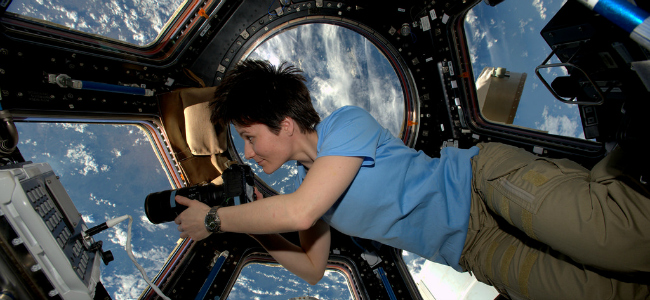
Similarly, the area of the brain which fine-tunes motor movements and stabilises balance, the cerebellum, is altered by time in zero-g. Astronauts no longer have to worry about balance or constant postural alterations, they just float. This change makes the cerebellum less important, and so it changes. Part of the adaptation which occurs in those first 24 hours is loss of some of the cells in the cerebellum. This won't be noticeable in zero-g, but once an astronaut returns to normal gravity this change, along with the changes to their inner ear, cause postural issues, clumsiness, and difficulty balancing.
While the brain does its best to adapt to the new situation, there are some functions which just don't adapt to a life in zero-g; the most important of these is sleep. While astronauts keep to a very strict schedule of work, play, and sleep, the last does not come easy.
Astronaut Scott Kelly, who recently returned from a year-long space mission, explained part of the reason why. “The sleep position [in space] is the same position throughout the day,” he said, “You don't ever get that sense of gratifying relaxation here that you do on Earth after a long day at work.”
In conjunction to the lack of restfulness is a lack of natural light, which plays havoc with the brain's natural sleep cycling. Despite usually being in space for up to six months, astronauts rarely sleep for more than six hours at a time until they're back on earth. This may not sound like much of an issue but sleep is hugely important for normal functioning. When we sleep our brains clean out any waste between cells, consolidate learning, and prune any unnecessary connections. Without good sleep we can't function at our best, we become slower and less precise, we make mistakes. In close orbit this isn't as much of an issue, communication between Earth and the international space station is near instantaneous, but the deeper we venture into space the more astronauts will have to rely on themselves and one another to make crucial decisions.
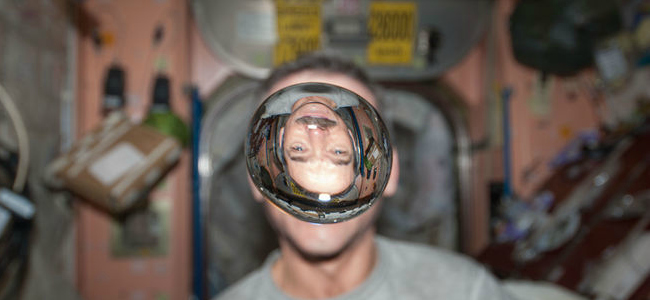
It's for this reason that NASA is working hard to improve sleeping conditions on the International Space Station. Should they go through with the three year Mars mission they need to trust that their astronauts will be healthy enough to perform at their best once they reach The Red Planet.
Zero-g is not altogether harmful but it is disorienting, and once an astronaut returns to earth their bodies and brains have to readapt. A process which can take up to a year.
“In the same way that every organ system needs to adapt to weightlessness, every organ system needs to re-adapt after a long period of time, back to an Earth environment,” Canadian Astronaut Bob Thirsk stated in reference to his return from a six-month mission. He stated that one of his biggest challenges during rehabilitation was keeping his blood pressure up. “I had trouble maintaining blood pressure to my head,” he said, “and therefore I felt pretty faint and dizzy.”
Thirsk's re-adaptation came in stages, and lasted around a year. First his balance came back, then his muscle strength, and lastly his bone strength. It's unclear whether there are any lingering effects of weightlessness but as it stands Thirsk, and his fellow astronauts, appear to have been able to return to terrestrial life without too much difficulty.
Vitamin D – No Sunlight in Space
Our main source of vitamin D is ultra violet light from the sun. UVB rays interact with a chemical on our skin, transforming it into vitamin D. In space, however, astronauts are shielded from this kind of radiation, in fact it's an absolute necessity, and so they need to consume 100% of their required vitamin D. Despite having their food carefully rationed astronauts still return to earth with reduced vitamin D levels.
Why is this important? Vitamin D is related not only to healthy bone density, but also to psychological wellbeing. Deficiencies in vitamin D have been linked to depression, and if astronauts returning from 6-months in space are suffering from low vitamin D, it isn't a good sign for those who would take part in the 3-year NASA mission or SpaceX's lifelong mission. This issue has to be addressed with food. We need to know whether the level of vitamin D continues to reduce over time, or if it is just sustained at a lower level in space.
When combined with the stresses of confinement, isolation, and high pressure decision making, safeguards against vitamin-D- related depression will be crucial to success. This is particularly important given the increased risk of psychological problems caused by ionising radiation.
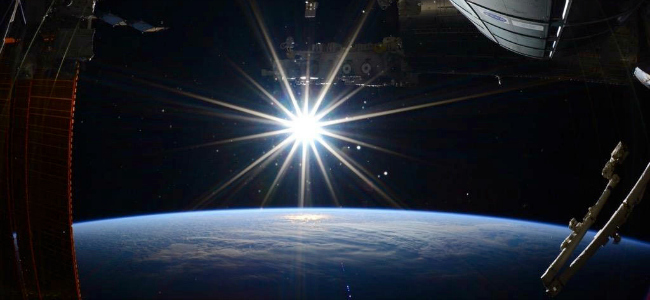
Ionising Radiation
Professor Charles Limoli, of the University of California Irvine, and his team are trying to develop preventative measures to minimise the impact of radiation on those travelling through space. He believes that shielding, no matter how well developed, cannot keep all forms of radiation out. “These highly energetic charged particles will traverse the ship…” he has stated, “and there is really no escaping them.”
Currently, astronauts are exposed to ionising radiation on the ISS. This level of radiation puts them at risk of developing various forms of cancer, cataracts, and infertility. These risks would be increased by extending time in space, including time spent below the very thin atmosphere of Mars. On top of this, ionising radiation is being increasingly linked to various forms of brain damage.
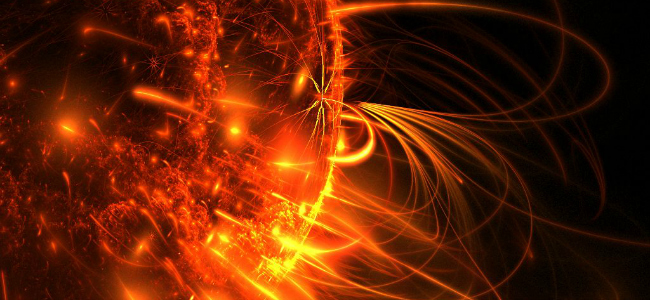
This radiation comes in the form of charged particles that hold excess energy. Researchers predict that during a three-year Mars mission at least 13% of the neurons in critical parts of the brain, such as the hippocampus, will be hit at least once by particles capable of causing damage. The energy in these particles has been shown to cause damage to DNA, breakdown cell walls, disturb normal processes, and alter the chemicals which allow your cells to function. This can cause cell death, inflammation, and trigger premature age-related issues in young individuals.
While astronauts avoid discussing the cognitive issues caused by space travel NASA has reported that returning astronauts experience issues with spatial memory, motor memory, movement control, and multitasking. The memory issues are believed to be due to inflammation of the hippocampus, the memory centre of the brain. The motor issues, however, may be due to reduced connection between the motor cortex and the cerebellum, or due to alterations in the motor system itself.
When rats were exposed to a level of radiation similar to that of an astronaut they experienced significant impairments to various types of memory. They also experienced increased anxiety, and fear-inducing situations remained frightening for longer. These effects lasted for more than 6-months after a single radiation event. The longer a person is in space the greater the risk of multiple radiation events and, some researcher believe, the greater the risk of developing psychological problems due to hippocampal damage.

Charged particles affect more than just the physical make-up of cells, they can also alter the chemicals in your brain. Your brain cells communicate with one another using chemicals called neurotransmitters. Depending on which neurotransmitter is released cells will behave in different ways. It is important that the right neurotransmitter is released at the right time in order for the brain to function normally. When charged particles enter the cells of the brain they can cause these chemicals to change, breaking down into other chemicals or altering their function.
One of the most important neurotransmitters in the brain, dopamine, is very easily changed by radiation. Dopamine oxidises when exposed to radiation and creates toxic products that build up in cells. This causes cell death in many of the areas of the brain which control our motor system, and results in an overall drop of dopamine in the brain.
Why is this important? Because it is frighteningly similar to the damage observed in Parkinson's disease.
On top of the risks of anxiety, cognitive failures, memory problems, dementia, and parkinsonian-like symptoms radiation stops the brain from repairing and rebuilding itself. There are few stem cells in the adult brain, but there are some. They primarily maintain our sense of smell and allow the hippocampus to function. When exposed to radiation these cells stop dividing. At a crucial time, when our brain needs all the help it can get, the repair system breaks.
To combat this problem experts, like Professor Limoli, are working on ways to help the body deal with the inevitable radiation. Over the next decade different doses of antioxidants will be trialled on astronauts, along with potent cognitive enhancing drugs to make up for functioning deficits caused by radiation.
By examining the effect of radiation we are better equipped to protect the body and the brain. Ionising radiation does not necessarily have to affect us as harshly as I've suggested above, but to minimise that harm we need to understand it. Once we know what to expect, and how to best combat it, it may prove possible to prevent any long-term harm caused by radiation events.
Live on Mars or return to Earth?
With current technology the two proposed missions to Mars have similar issues, but there are a few crucial differences. Issues related to zero-g will be more severe for those returning to Earth, while radiation will have a greater impact on those who choose to stay on Mars. Those who return to Earth risk being physically damaged by an altered cerebellum, weakened muscles and bones, damaged eyes, and greater risks of cancer. The low Martian gravity, about 1/3 of Earth's, will be more forgiving of physical deterioration but colonists will continue to be at risk of radiation and brain damage for the rest of their lives.
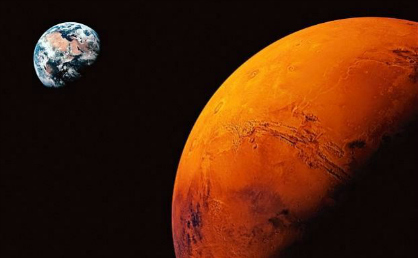 For these reasons SpaceX and NASA will need to focus their resources on different issues. Collaboration between the two will be incredibly important, but the larger challenges facing their individual missions are different.
For these reasons SpaceX and NASA will need to focus their resources on different issues. Collaboration between the two will be incredibly important, but the larger challenges facing their individual missions are different.
NASA needs to maintain the health of their astronauts on a long mission, and enable them to return to Earth in a functional state. SpaceX, on the other hand, don't have to worry quite so much about zero-g weakening their colonists' bodies. The Martian gravity won't pose as much of a risk as Earth gravity and their colonists will arrive in this final gravity after just six to eight months, compared to the three years in space faced by NASA astronauts.
SpaceX colonists, however, need to be protected from radiation to a much greater extent than NASA's astronauts. Not only do they need to ensure that their bodies and brains aren't negatively impacted by radiation, but they're expected to reproduce. They won't be able to do that if radiation has rendered them infertile or caused dangerous changes to their DNA.
Given the seriousness of this issue it's reassuring that a colony won't even be attempted until more than thirty years after NASA's planned mission to Mars. Once we know what to expect, the future of Martian colonisation could be much brighter.
Conclusion
This is by no means an exhaustive list of the potential challenges of space travel. There are a host of physical and mechanical issues which go hand in hand with the challenges we've mentioned. The difference is that we know about the physical risks, we understand the risks of mechanical failure, but until recently it was unclear how space travel could impact our brains.
We didn't evolve to deal with the challenges of space, but our drive to explore has taken us there anyway. The future missions to Mars will go ahead, there's no question about that, but it's important that the people on those missions understand the risks. Travelling to the stars will have life altering costs, and these need to be seriously considered before people head off to that final frontier.
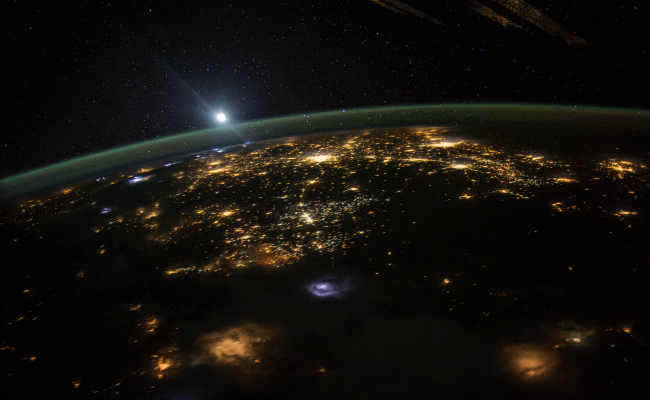
If you've enjoyed this article, or any of the other work we do here, please consider donating to the Brain Health Research Centre. Your generosity could make a world of difference.
